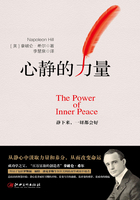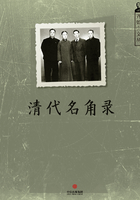Of the right of him, whether Counsell, or one Man onely, who hath the supreme power in the City I. We must consider first of all what a multitude of men (gathering themselves of their owne free wills into society) is, namely, that it is not any one body, but many men, whereof each one hath his owne will, and his peculiar judgment concerning all things that may be propos'd. And though by particular Contracts each single man may have his own Right, and Propriety, so as one may say This is mine, the other, That is his; yet will there not be any thing of which the whole multitude, as a Person distinct from a single man, can rightly say, This is mine, more then anothers. Neither must we ascribe any action to the multitude, as it's one, but (if all, or more of them doe agree) it will not be an Action, but as many actions, as Men. For although in some great Sedition, it's commonly said, That the People of that City have taken up Armes; yet is it true of those onely who are in Armes, or who consent to them. For the City, which is one Person, cannot take up Armes against it selfe. Whatsoever therefore is done by the multitude, must be understood to be done by every one of those by whom it is made up; and that he, who being in the Multitude, and yet consented not, nor gave any helps to the things that were done by it, must be judg'd to have done nothing.
Besides, in a multitude not yet reduc'd into one Person, in that manner as hath been said, there remaines that same state of nature in which all things belong to all men and there is no place for Meum & Tuum, which is call'd Dominion, and Propriety, by reason that that security is not yet extant which we have declar'd above to be necessarily requisite for the practise of the Naturall Laws.
Multitude, &c.] The Doctrine of the Power of a City over it's Citizens, almost wholly depends on the understanding of the difference which is between a multitude of men ruling, and a multitude ruled: For such is the nature of a City, That a multitude, or company of Citizens, not onely may have command, but may also be subject to command, but in diverse senses; which difference I did beleeve was clearly enough explained in this first Article,, but by the objections of many against those things which follow, I discern otherwise; wherefore it seemed good to me, to the end I might make a fuller explication, to adde these few things. By Multitude, because it is a collective word, we understand more then one, so as a multitude of men is the same with many men; The same word, because it is of the singular number, signifies one thing, namely, one multitude; but in neither sense can a multitude be understood to have one will given to it by nature, but to either a severall; and therefore neither is any one action whatsoever to be attributed to it: therefore a Multitude cannot promise, contract, acquire Right, conveigh Right, act, have, Possesse, and the like, unlesse it be every one apart, and Man by Man; so as there must be as many promises, compacts, rights, and actions, as Men. therefore a Multitude is no naturall Person; but if the same Multitude doe Contract one with another, that the will of one man, or the agreeing wills of the major part of them, shall be received for the will of all, then it becomes one Person; for it is endu'd with a will, and therefore can doe voluntary actions, such as are Commanding, making Lawes, acquiring and transferring of Right, and so forth; and it is oftner call'd the People, then the Multitude. We must therefore distinguish thus. then we say the People, or Multitude, wills, commands, or doth any thing, it is understood that the City which Commands, tills and Acts by the will of one, or the concurring wills of more, which cannot be done, but in an Assembly; But as oft as any thing is said to be done by a Multitude of Men, whether great, or small, without the will of that man, or assembly of men, that's understood to be done by a subjected People, that is, by many single Citizens together, and not proceeding from one till, but from diverse wills of diverse men, who are Citizens, and Subjects, but not a City.
II. Next, we must consider that every one of the Multitude (by whose meanes there may be a beginning to make up the City) must agree with the rest, that in those matters which shall be propounded by any one in the Assembly, that be received for the will of all which the major part shall approve of; for otherwise there will be no will at all of a Multitude of Men, whose Wills and Votes differ so variously. Now if any one will not consent, the rest notwithstanding shall among themselves constitute the City without him: Whence it will come to passe, that the City retaines its primitive Right against the Dissentour, that is, the Right of tar, as against an Enemy.
III. But because we said in the foregoing Chapter, the sixth Article, That there was requir'd to the security of men, not onely their Consent, but also the Subjection of their wills in such things as were necessary to Peace and Defence; and that in that Union, and Subjection, the nature of a City consisted; We must discerne now in this place, out of those things which may be propounded, discuss'd, and stated in an Assembly of men, (all whose wills are contain'd in the will of the major part) what things are necessary to Peace, and common defence: But first of all, it is necessary to Peace, that a man be so farre forth protected against the violence of others, that he may live securely, that is, that he may have no just cause to fear others, so long as he doth them no injury. Indeed, to make men altogether safe from mutuall harmes, so as they cannot be hurt, or injuriously kill'd, is impossible, and therefore comes not within deliberation. But care may be had there be no just cause of fear; for security is the end wherefore men submit themselves to others, which if it be not had, no man is suppos'd to have submitted himselfe to ought, or to have quitted his Right to all things, before that there was a care had of his security.














